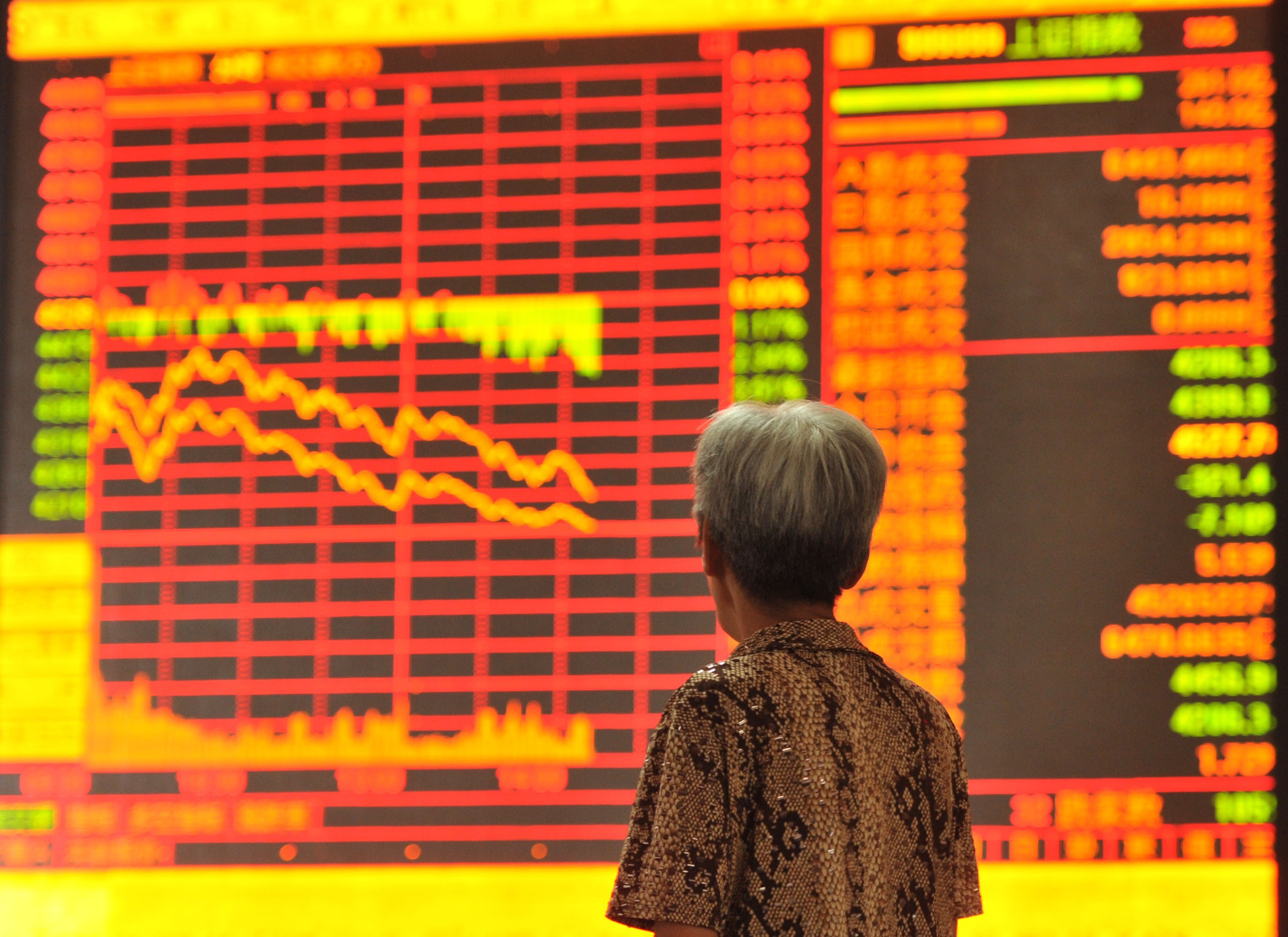Chinese officials launch 'witch hunt' amid financial market paranoia


A free daily email with the biggest news stories of the day – and the best features from TheWeek.com
You are now subscribed
Your newsletter sign-up was successful
The Shanghai Composite Index has plummeted 37 percent since June, due in part to a period of weak economic data and Beijing's recent currency devaluations. In an attempt to rescue their economy, China's government is now treating investment firms with the same suspicion and scrutiny with which they have traditionally policed their political dissenters. "They seem to be harassing anybody that they thought was selling or was short," one Hong Kong hedge fund manager told The New York Times. "Hello, it's a hedge fund — they are long and short — but China is only looking at the short side."
Nearly 200 reporters have been punished by a special police campaign for "spreading rumors," according to the Times, the most notable of which was financial journalist Wang Xiaolu, who was detained by police and later made to apologize for an article the government believed had the potential to further damage the market. Other instances include police officers downloading trading data, or telling fund managers to stop selling.
Li YiFei, the chief of the world's largest publicly traded hedge fund, vanished for a short period of time, though she denied it was due to police detention, despite widespread skepticism of her alibi. In another instance, a Hong Kong based hedge-fund manager told the Times he was cashing out of close to $500 million invested in mainland China, citing his fear of "the witch hunt that is going on."
The Week
Escape your echo chamber. Get the facts behind the news, plus analysis from multiple perspectives.

Sign up for The Week's Free Newsletters
From our morning news briefing to a weekly Good News Newsletter, get the best of The Week delivered directly to your inbox.
From our morning news briefing to a weekly Good News Newsletter, get the best of The Week delivered directly to your inbox.
"There is, generally, a very nervous atmosphere, as people wait to see the outcome of some of these investigations and how deep the rabbit hole goes," Effie Vasilopoulos, a partner at the Hong Kong office of the Sidley Austin law firm, told the Times. "How wide a net is the government going to cast in terms of looking at foreign firms and their operations — not just onshore, but also offshore as well?"
A free daily email with the biggest news stories of the day – and the best features from TheWeek.com
Jeva Lange was the executive editor at TheWeek.com. She formerly served as The Week's deputy editor and culture critic. She is also a contributor to Screen Slate, and her writing has appeared in The New York Daily News, The Awl, Vice, and Gothamist, among other publications. Jeva lives in New York City. Follow her on Twitter.
-
 How the FCC’s ‘equal time’ rule works
How the FCC’s ‘equal time’ rule worksIn the Spotlight The law is at the heart of the Colbert-CBS conflict
-
 What is the endgame in the DHS shutdown?
What is the endgame in the DHS shutdown?Today’s Big Question Democrats want to rein in ICE’s immigration crackdown
-
 ‘Poor time management isn’t just an inconvenience’
‘Poor time management isn’t just an inconvenience’Instant Opinion Opinion, comment and editorials of the day
-
 TikTok secures deal to remain in US
TikTok secures deal to remain in USSpeed Read ByteDance will form a US version of the popular video-sharing platform
-
 Unemployment rate ticks up amid fall job losses
Unemployment rate ticks up amid fall job lossesSpeed Read Data released by the Commerce Department indicates ‘one of the weakest American labor markets in years’
-
 US mints final penny after 232-year run
US mints final penny after 232-year runSpeed Read Production of the one-cent coin has ended
-
 Warner Bros. explores sale amid Paramount bids
Warner Bros. explores sale amid Paramount bidsSpeed Read The media giant, home to HBO and DC Studios, has received interest from multiple buying parties
-
 Gold tops $4K per ounce, signaling financial unease
Gold tops $4K per ounce, signaling financial uneaseSpeed Read Investors are worried about President Donald Trump’s trade war
-
 Electronic Arts to go private in record $55B deal
Electronic Arts to go private in record $55B dealspeed read The video game giant is behind ‘The Sims’ and ‘Madden NFL’
-
 New York court tosses Trump's $500M fraud fine
New York court tosses Trump's $500M fraud fineSpeed Read A divided appeals court threw out a hefty penalty against President Trump for fraudulently inflating his wealth
-
 Trump said to seek government stake in Intel
Trump said to seek government stake in IntelSpeed Read The president and Intel CEO Lip-Bu Tan reportedly discussed the proposal at a recent meeting
